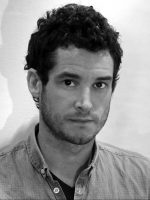Scott Billings
Research Area
Education
MFA (UBC)
BFA (ECUAD)
BASc (Waterloo)
About
Scott Billings’ art practice looks at the mimetic relationship between the apparatus of cinema and the language of movement it articulates. Centering on issues of animality, roboethics, and spectatorship, his sculptures and video installations mix the spatial spectacle of long takes with the materiality of kineticism. How does cinema move? And in what ways does the apparatus reveal both the mechanisms of causality and its own dormant animal quality? Scott addresses these questions under the pretext of a technological conundrum, building machines out of his preoccupation with geometric precision and moving parts. He employs strategies of making through translations of space and time: motion is translated into sculptural form and duration is amassed into material thickness. Custom machines are often created as tools for making that become actual components in his gallery installations, typically moving cameras and projectors as way to transpose architectural space into the gallery. The live kinetic performativity of his installations reverses the passive spectatorship of modern cinema into one that is active and embodied, reminiscent of early film spectacles.
Scott Billings also works as a mechanical engineer and industrial designer in Vancouver, focusing on wearable exoskeletons and custom camera rigs. He received an MFA from the University of British Columbia (2009), a BFA from Emily Carr University of Art and Design (2007), and a BASc in Mechanical Engineering from the University of Waterloo (2003). He is represented by Wil Aballe Art Projects.
